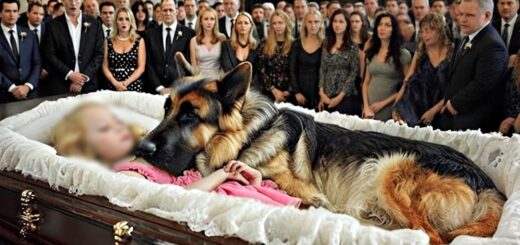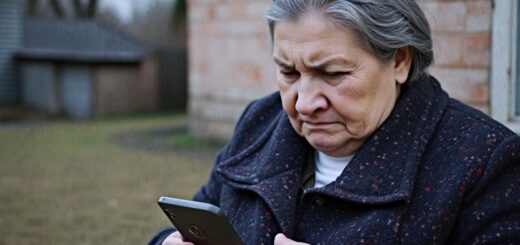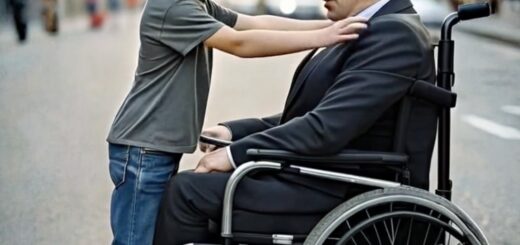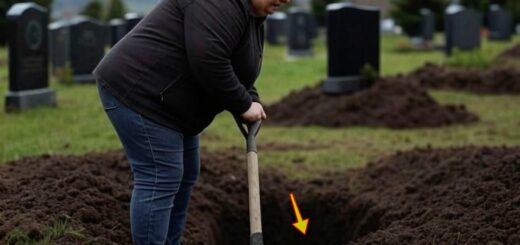A gravely sick wealthy woman strolling in a snowy garden noticed a father and his son shivering on a seat—and brought them to her residence…
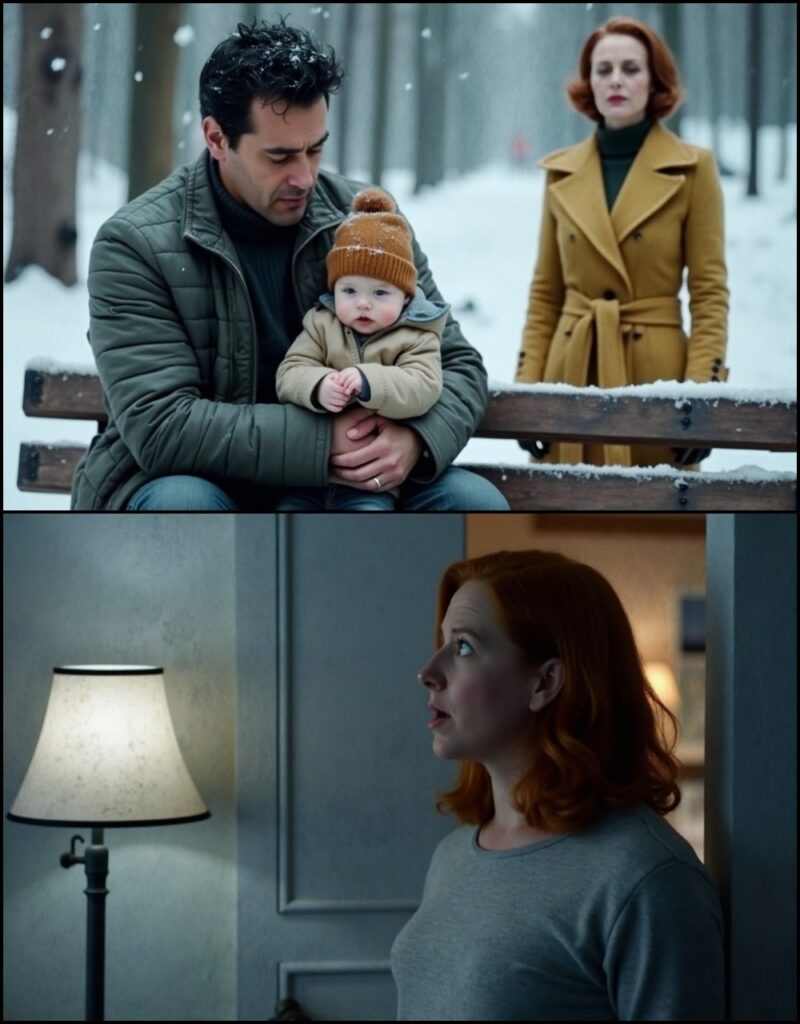
Snow fell in thick flakes, as if the sky were trying to wrap the city in a blanket of oblivion, to hide all human suffering and fatigue from it.
Emily Thompson stopped at the doors of the medical center, clutching a thin envelope in her frozen fingers. Her fingers didn’t tremble; outwardly, she was still composed, as if at a presentation or a board meeting.
But somewhere deep inside, behind the facade of strength and control, a quiet panic had begun. In this envelope, amid the cold medical terminology, hid her sentence—glioblastoma, stage four. That was it. Game over.
She stepped forward, but her legs felt like stone. The wind, vicious and biting, whipped around the corner, lashed her face, tangled in her hair, tugged at her coat collar.
But Emily didn’t flinch. No fear, no pain, no cold. In her head, where business ideas, logistics, and exchange rates usually swarmed, there was only one sound—a monotonous, viscous hum.
An internal echo: the end. The snow merged with the wet asphalt, seeping under the soles of her designer boots, staining them, leaving salty streaks. Once, she would have hated that.
Once, she might have reprimanded her assistant for such a walk in the freezing cold. Now—she couldn’t care less. The sky blended with the city in a gray haze.
Tree branches, like an old woman’s fingers, bony and twisted, reached upward, as if begging for mercy. Emily looked at them and felt a strange connection between these trees and herself, between their silent pain and what had settled inside her. Her whole body, once strong, agile, enduring, now felt like a fragile structure on the brink of collapse.
People passed by, with bags, in headphones, with children, with dogs. Each had their own destination. She had none.
No plans, no meetings, no tomorrow. Only the diagnosis in the envelope, burning through her coat pocket. She slowed her step by the window of a toy store, where a plastic Santa Claus waved his hand, and artificial snow fell in a closed loop.
Once, such things would have elicited a slight smirk from her; now—a bitter irony. Who would celebrate Christmas with her now? Who even knew she was still alive? The headquarters on the 32nd floor, her name on the Forbes list, a personal chef, an art collection—all of it seemed not like wealth, but artifacts of someone else’s illusory life. A bus passed by, splashing her up to her calves with dirty slush.
She didn’t turn around. Didn’t get indignant. It no longer mattered.
In this new, terrifying simplicity of what was happening, everything became superfluous: numbers, clothes, even her own name. When she reached a small park, her legs slowed on their own. There, on a bench under a streetlamp, as if part of the urban scenery, sat a man with a child.
He held the boy close, as if he could shield him from all the evil in the world. Snow had already blanketed their shoulders, covered their hair, their cheekbones. They almost blended into the landscape, like two living snowdrifts.
But Emily immediately understood: they weren’t sleeping. They were just waiting. The boy was no more than six, his face sharp, nose red, eyes huge and anxious despite the fatigue.
His mitten dangled on a string, like a child’s illusion of protection slipping away. The man looked even more exhausted. Stubble, chapped lips, a gaze with more pain than words.
Both were dressed in thin jackets, not suited for such cold. Emily approached without thinking what she would say. Something inside her contracted, some fragile, long-forgotten feeling came alive again.
She stopped in front of them, as if checking reality. You can’t sit here like this, her voice sounded unexpectedly quiet. The child—he’ll freeze.
The man slowly turned his head. His gaze wasn’t hostile. There was something else: fatigue, detachment, and just a little dignity that hadn’t yet left.
Where else can we go? he asked hoarsely. Emily swallowed. How many times had she asked herself that question in her head over the last forty minutes.
Home? she murmured, already knowing the answer. He smirked, bitterly, without malice. We had a home.
But no more. Now only here. The child was silent.
He didn’t hide, didn’t cling to his father, just sat, staring ahead, as if accustomed to only cold and silence around him. What’s his name? Ethan. And I’m Michael.
How long have you been here? Since yesterday. We looked for a shelter first.
But with a child, without papers. They won’t take us. They don’t even want to look….



